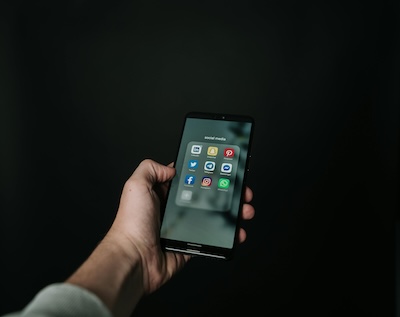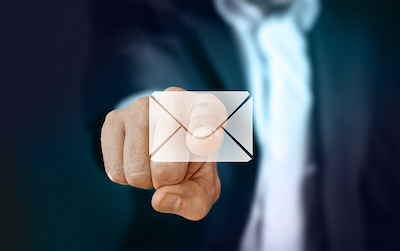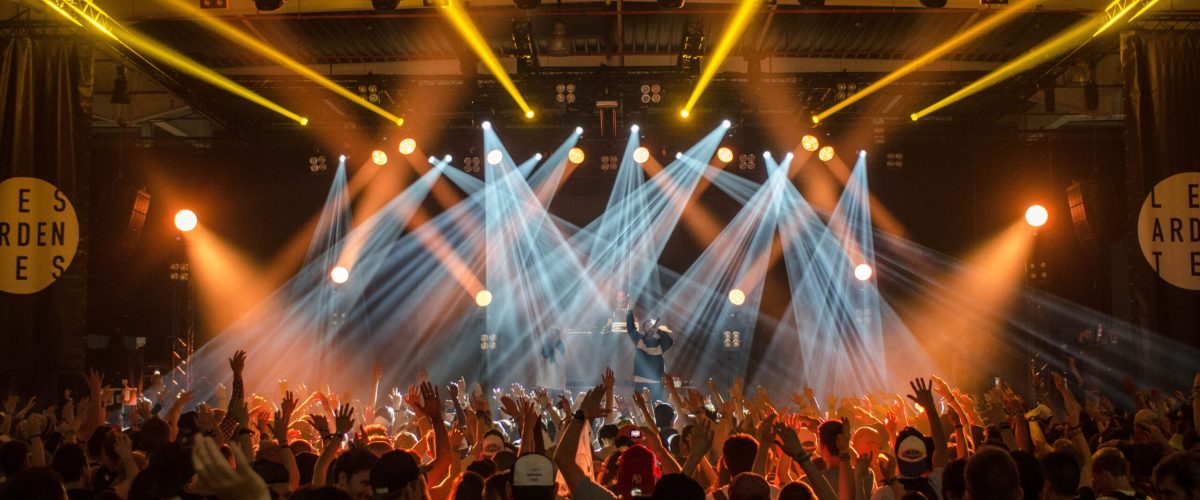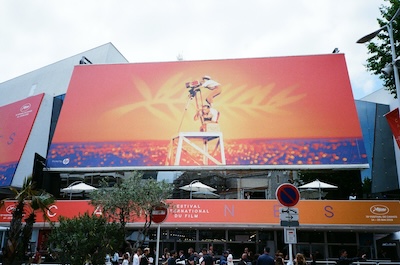In today’s world, promoting live events means knowing how to market your event using both online and offline marketing strategies is incredibly important in spreading the word and reaching audiences far and wide. Integrating both traditional and digital marketing tactics in your marketing plan is additionally crucial to effectively promoting a live event. Traditional marketing is a promotional strategy that targets audiences using offline materials and interacts with consumers in physical locations. This may include flyers, billboards, and print ads. Digital marketing encapsulates any marketing that appears on any digital device and may include online video, display ads, search engine marketing, paid social ads, and social media posts. In this article, we will explore various tips, tricks, and tools to enhance the promotion of live events, recognizing the synergy between traditional and digital marketing channels.
Promoting Live Events Using Traditional Marketing
As defined above, traditional marketing involves conventional promotional methods that predate the digital era. These marketing methods include print media, radio, television, direct mail, and outdoor advertising. Through traditional marketing methods, one can strategically target specific audiences and demographics in certain areas and create eye-catching promotional materials that draw local crowds to your live event. In the digital age, these traditional marketing methods may seem obsolete. But, on the contrary, leveraging more traditional marketing techniques like flyering, print ads, radio ads, etc. can work well alongside digital marketing to attract the best crowd possible.
Print Media

Other than a QR code, be sure to include all the key details about your event on the flyer, including date, time, performer name, venue name and address, ticket price, and any age restrictions. Physical flyering allows you to be strategic with where to place them. You can place them around the venue itself and around highly trafficked areas in your town to really target a specific region. Assemble a street team to distribute flyers or other relevant promotional materials about your live event to local businesses and locations within your target area.
Print media also includes advertising in newspapers and magazines. When marketing live events, sticking to just one avenue of promotion may not be wise. Try it all. Placing strategic ads in local newspapers and magazines is a smart tactic to spread the word. Research some press outlets and distribute press releases about your event. Securing media coverage is an important part of your promotional efforts. Having newspapers and other media outlets promote and share your event will help you get the word out to a huge cross-section of potentially interested people.
Radio and Television

Find some local radio stations and college radio stations to contact. Get the host of a show to talk about your event and try offering free tickets to your event in exchange for a little hype. You could even try asking the radio show to run a contest and give away tickets to your event. The cost of this is minimal, and the potential benefits are vast. Plenty of people still tune into the radio, so this could expand your reach. Again, if the budget allows, placing ads on television is another method to share the news of your live event. Consider advertising on cable television channels. Cable television advertising allows better targeting and is lower in cost than broadcast television advertising. Any attempt to spread the word and reach potential customers in target areas across multiple platforms is key.
Direct Mail

Through direct mail, you can send physical mail to your house mailing list or to people you know who may be enticed to attend your event. A major advantage of direct mail is the ability to choose your audience based on their proximity to your event venue. With this marketing method, you know that recipients are close by, are able to attend, and won’t be deterred by distance. The downside is that direct mail is more expensive that other forms of marketing with design, printing and mailing costs.
Outdoor Advertising
Outdoor marketing, also known as out-of-home (OOH) advertising, involves promoting messages to audiences when they are outside their homes. Outdoor marketing strategies can include billboards, transit advertising, posters, and more. For live event promotion, outdoor marketing offers a way to reach a wide and diverse audience in high-traffic locations. Other than OOH advertising, guerilla marketing is another marketing strategy to promote live events. Guerilla marketing involves unconventional and often low-cost tactics to promote an event and relies on creativity and surprise to generate buzz and engage the audience. A guerrilla marketing campaign is one that is intended to astonish your audience by catching their attention and making them pay attention.
If you can afford it, investing in billboards to promote your event is a great marketing strategy. Billboards allow you to promote the event from high above and capture the attention of all who pass underneath it. Digital billboards allow you to share the space with other advertisers, lowering your costs for such advertising. Additionally, placing ads within taxis, buses, or any form of public transportation that has a lot of foot traffic is another wise strategy. And with guerrilla marketing, you can be creative and think outside the box to promote your live event. From stenciling, chalk art, publicity stunts, installations, and pop-ups, there’s always some creative and engaging way to reach your audience.
Promoting Live Events Using Digital Marketing
As previously mentioned, digital marketing leverages online platforms and technologies to promote services, such as live events. It includes a wide range of channels and platforms such as social media, email, search engines, and content marketing. In today’s music and entertainment ecosystem, knowing how to digitally market is pivotal to spreading the message of your event. Traditional marketing isn’t enough anymore when you have the breadth of the internet to connect and engage with, giving you the ability to reach audiences beyond your immediate circle.
Social Media

Popular social media platforms people use for digital marketing include Facebook, Twitter (X), Instagram, TikTok, YouTube, and LinkedIn. However, which social media platforms you use to promote your live event will depend on your goals and audience. If your audience is an older crowd, using TikTok to market the event may not be the smartest move. Facebook may be a better choice in that situation.
Here are some tips Mailchimp recommendations for effective social media marketing:
- Craft high-quality and engaging content
- Reply to comments and questions in a professional manner
- Create a social media posting schedule
- Post at the right time
- Hire social media managers to support your marketing efforts
- Know your audience and which social media channels they’re most active on

Email marketing includes sending promotional and informational emails to build relationships with your audience and convert prospects into buyers. For your live event, utilize email marketing to send out key information about the event, on-sale dates, presale information, or any messages regarding the event in general.
Compile an email list of potential ticket buyers and attendees for your live event, and send out informational emails and invitations. Make sure to make the emails engaging, easy to read, and visually appealing. Start with an attention-getting and relevant subject line. Write your copy about the event in a concise manner that makes it easy to grasp and understand. And use bullet points and short paragraphs to break up the information.
Using email campaigns as a way to promote and market your live event is a proven effective marketing tool, with 89% of surveyed professionals naming it their most effective generator for leads. Consider email marketing campaigns when promoting your live event to reach your desired audience.
Content Marketing
Content marketing refers to the creation of online content to connect with your audience. Content creation is a great way to build your online profile so that people get familiar with you and your event. Content creation can appear in multiple formats, such as images, videos, and writing. Effective content marketing for events involves creating and distributing valuable, relevant, and consistent content to attract and retain attendees.
Examples of content marketing include:
- Blog posts
- Newsletters
- Videos
- Infographics
- Images
Consider who your audience is, and what content would best engage them. If your audience is younger, utilize Instagram posts and TikToks to reach that crowd and draw their attention towards your live event. Content creation is creative, versatile, and impactful, and can help you promote your event from conception to completion. By crafting compelling, informative, and engaging content, you can build excitement and boost ticket sales.
Influencer Marketing
Influencer marketing can be a game-changer when it comes to promoting live events. Influencers have the unique ability and platform to connect with their audience on a personal level and create authentic content, making them valuable partners in generating excitement and driving attendance.
Consider some relevant celebrities, local celebrities with a platform, social media influencers, etc. who align with the brand of the event itself. When choosing to use influencer marketing, it’s important to partner with reputable influencers, since they’re representing your brand. Choosing the wrong influencers can have adverse effects, and tarnish your brand image, so make sure your partnership makes sense. If you’re promoting a local community event, for example, partner with a local celebrity who is central to that specific community to post about the event and create hype.
Here are some tips on how to best utilize influencer marketing when promoting your event:
- Partner with influencers that match your brand.
- Plan your influencer strategy. Be clear about what you expect from the influencer. Create a contract stating what the promotional campaign will look like, how many posts you want, what formats you want the posts on (video, image), and what platforms you want them to post on.
- Have them post to generate pre-event hype. Utilize influencers to get people excited and talking about your event. Have them create hashtags, countdowns, and exclusive content to drive anticipation.
- Have the influencer post in real time about the event and post content following the event. Real-time coverage allows influencers to give their audience a glimpse into the excitement, performances, and atmosphere. Post-event recaps extend the lifespan of your event in the digital space and provide valuable content for future promotional efforts.
Effective influencer marketing results in increased visibility, brand exposure, and ticket sales for your event.
Conclusion
Successfully promoting live events requires a thoughtful combination of traditional and digital marketing strategies. While traditional marketing methods provide a physical, tangible local presence, digital platforms offer a wider global reach and real-time engagement. By integrating the two, event organizers can create a comprehensive marketing approach that maximizes visibility, engagement, and event attendance. The key to marketing live events lies in understanding each channel’s strengths and harnessing their collective power to create an engaging and effective promotional campaign.
Related Posts:





